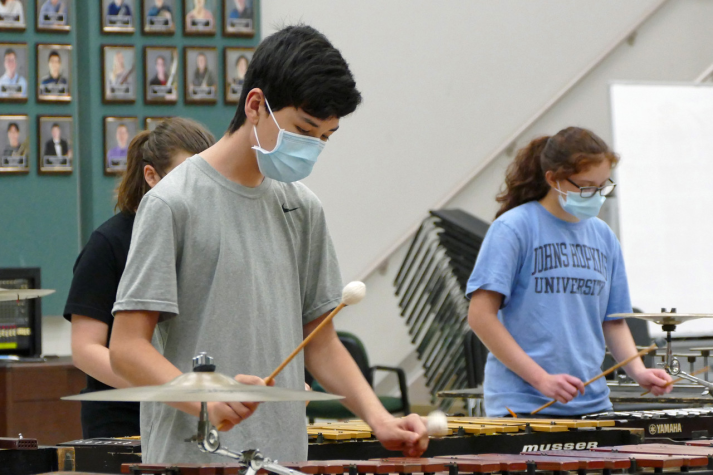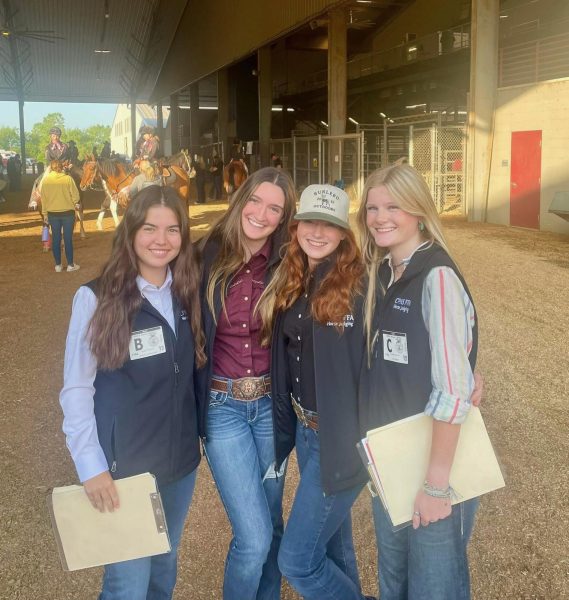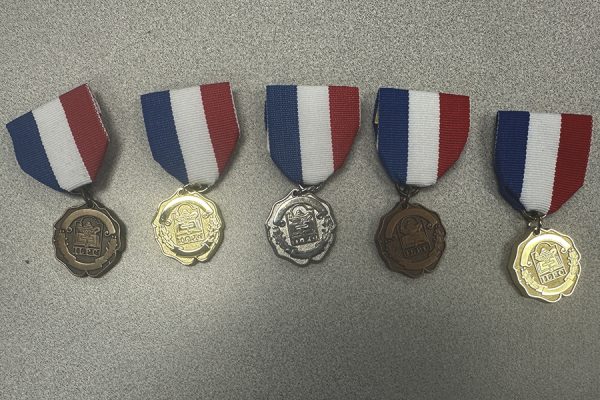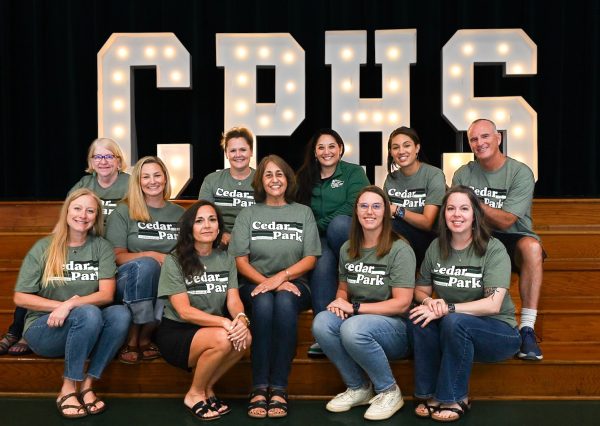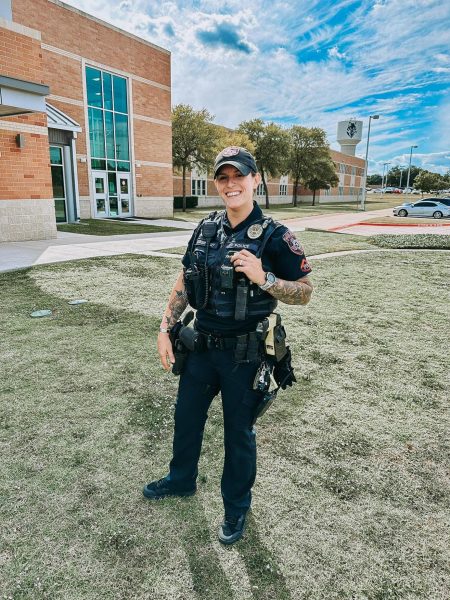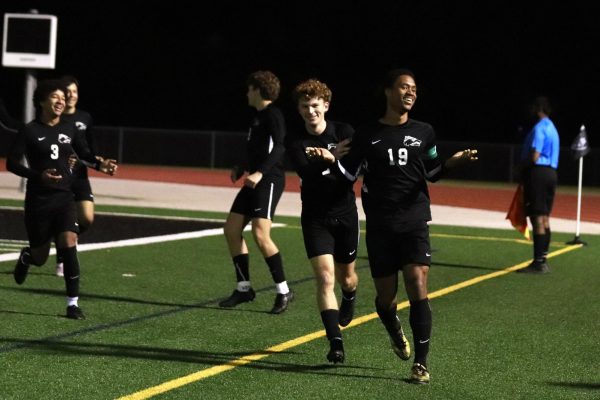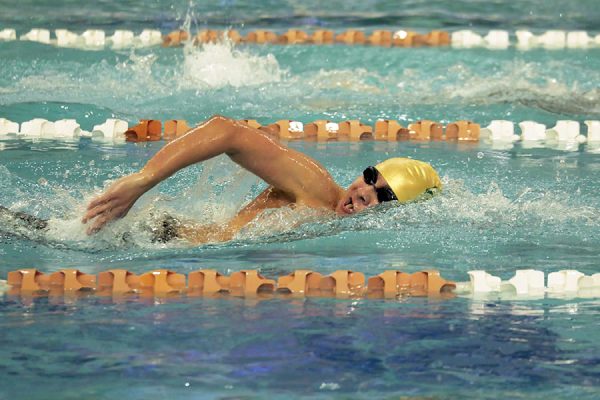A Long March Ahead
Band Adapts to Online School
Sophomore Kai Gray rehearses drumline show music while keeping in line with quarantine measures. Gray, and the rest of the percussion section, came back on Aug. 24. “Once we’re together playing music, I don’t really pay attention to the masks or distancing, and things feel pretty normal,” Gray said.
September 25, 2020
In the resumption of online school, classes typically take a hands-off approach, where students receive, on average, a 45-minute lesson and do their work on Google Classroom. But what happens when the class is an extracurricular reliant on physical meetups and close-range contact during rehearsals?
With the schedule turned on its head, band directors have to carry over as much as possible while keeping it accommodatable to what is possible on a Zoom call. And “carry over” they have.
In a normal rehearsal, students arrive to start with physical warm-ups like running and basic cardio before shifting to rehearsing their new music indoors or going through marching technique. However, in online school, the marching technique comes first as students are instructed to walk in their rooms.
“It doesn’t look as weird as you think,” sophomore and Honor Band alto saxophone player Caleb Taylor said. “Despite how it sounds, it’s just students memorizing their drills and positions in their own rooms. It’s a little awkward, but like the rest of online school, it’s easy to get used to as part of the routine.”
The typical after school 2-hour rehearsal and, in the first semester, a regional audition master class have been carried over to an online format. Another one of the major differences this fall has been events. Competitions like Bands of America Regional and the Dripping Springs Drumline Contest have been delayed or outright cancelled.
“Many things had to change,” symphonic band baritone saxophone player and sophomore Mikail Sadic said. “The show got shelved, and we got an entirely new one with its own music. The system that we had become familiar with was completely different.”
Directors and section leaders have had to get creative in order to maintain morale. For example, a house system where each student is placed in a house led by one of four drum majors, and points accrued by each house’s submissions of extra music or exercises are counted each week to give a trophy to whoever had the most. Rehearsals, too, face their own problems when trying to connect an entire ensemble on one online call.
“It definitely feels harder to be fully engaged virtually,” front percussion ensemble member and sophomore Kai Gray said. “The in-person rehearsals are much better than virtual rehearsals purely because of the ability to play together without delay. Playing virtually is a completely different experience as you aren’t able to play at the same time, so it’s mainly been one person playing while everyone else would play along while muted.”
Starting on Sept. 4., in-person after school rehearsals became an option for the wind section in which students were split into four groups of people that each went once a week. Directors have implemented many precautions to prevent any spread of disease at an optional in-person rehearsal. Everyone must wear a mask, and close physical contact is forbidden when playing on school grounds.
“While I honestly prefer the normal way of going about things, the directors are doing a really good job of balancing things out and presenting opportunities to students while looking out for their safety,” Taylor said. “I can say I’m proud of them, and that I’m impressed with the way things are being handled.”

![Posing with their UIL State Trophy, the Robolobos Van Halen Team beams with excitement after their win. “It was a team effort,” junior Noah Vo said. “I was happy because something happened in the first match and the match was also really close. So [when] they finally revealed it, I was pretty happy.” Photo courtesy of Amy Lovelace](https://cphswolfpack.com/wp-content/uploads/2025/05/IMG_0910-EDIT-1200x723.jpg)
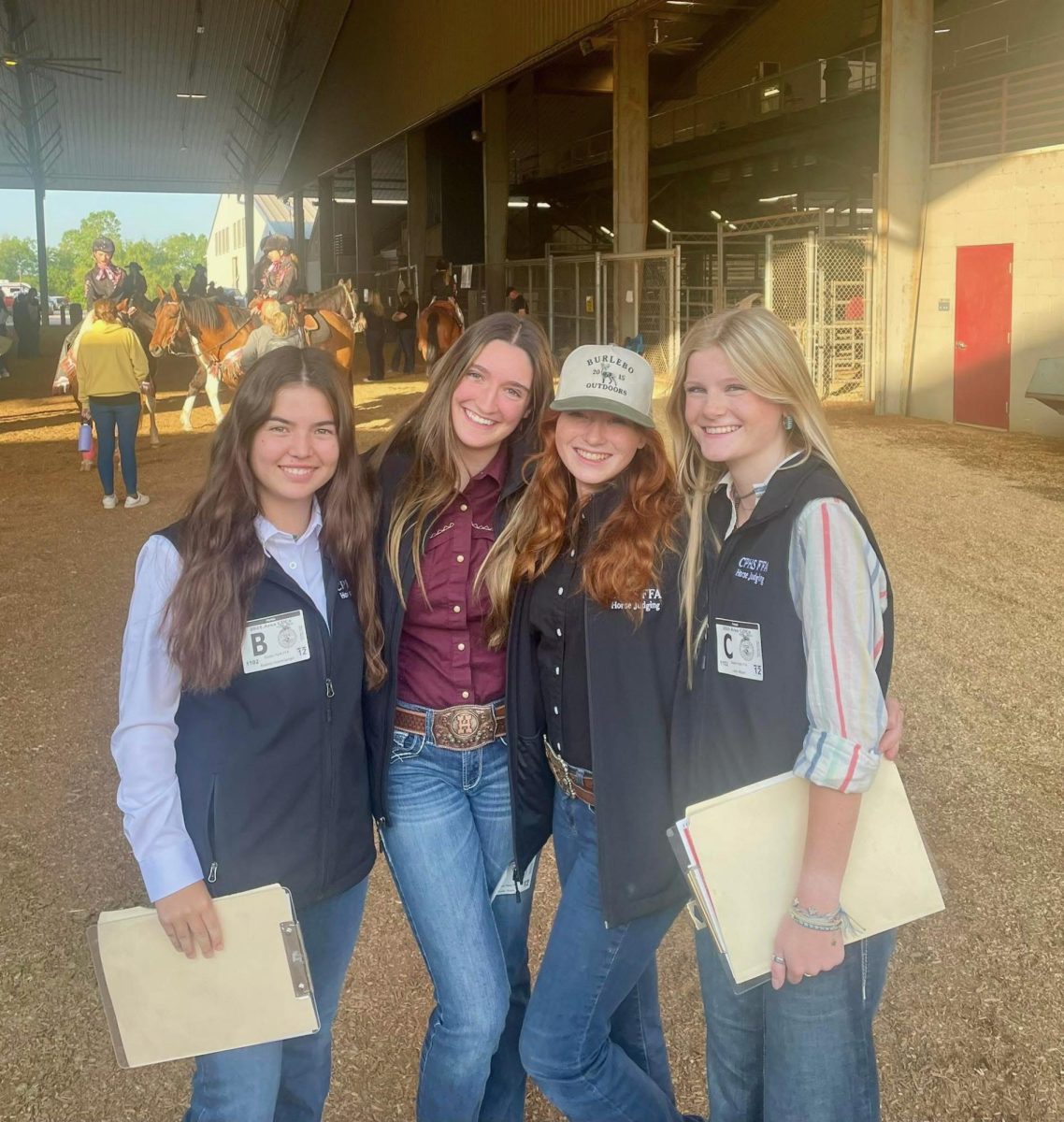
![Broadcast, yearbook and newspaper combined for 66 Interscholastic League Press Conference awards this year. Yearbook won 43, newspaper won 14 and broadcast took home nine. “I think [the ILPC awards] are a great way to give the kids some acknowledgement for all of their hard work,” newspaper and yearbook adviser Paige Hert said. “They typically spend the year covering everyone else’s big moments, so it’s really cool for them to be celebrated so many times and in so many different ways.”](https://cphswolfpack.com/wp-content/uploads/2025/05/edited-ILPC.jpg)











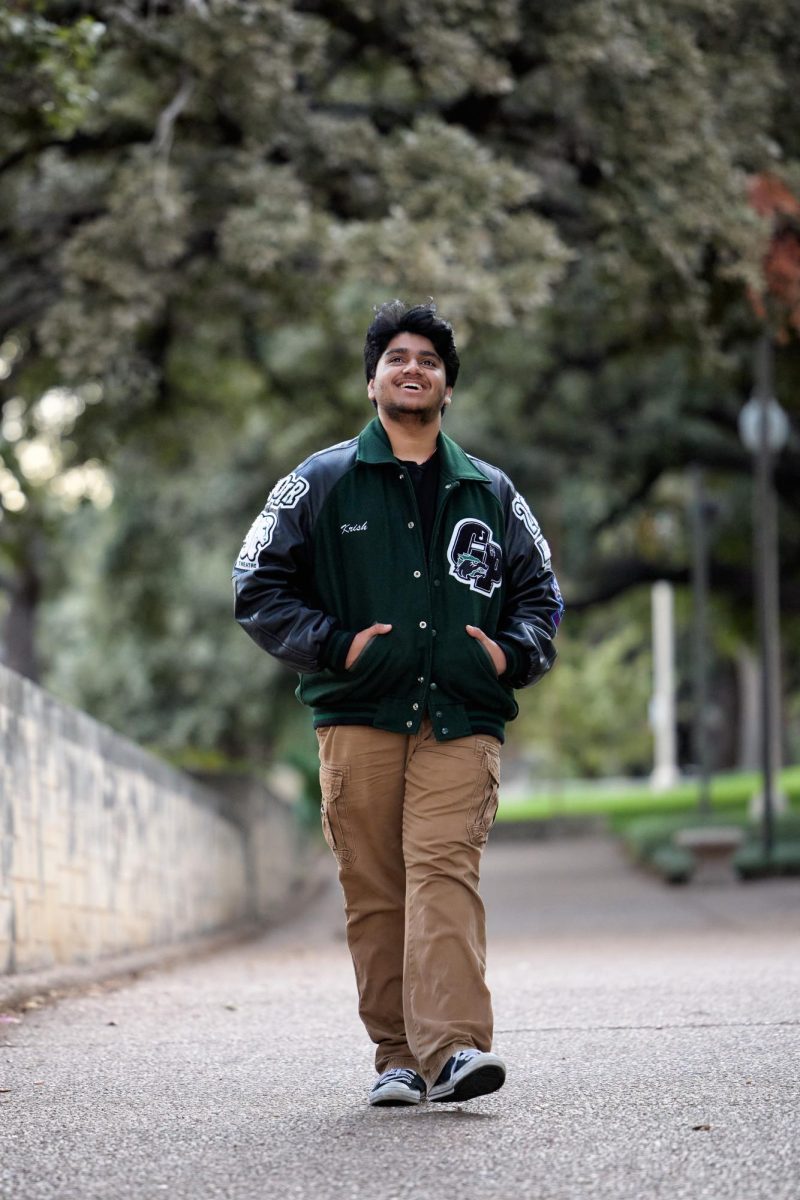

![Bringing her arm over her head and taking a quick breath, junior Lauren Lucas swims the final laps of the 500 freestyle at the regionals swimming competition on date. Lucas broke the school’s 18-year-old record for the 500 freestyle at regionals and again at state with a time of 4:58.63. “I’d had my eye on that 500 record since my freshman year, so I was really excited to see if I could get it at regionals or districts,” Lucas said. “ State is always a really fun experience and medaling for the first time was really great. It was a very very tight race, [so] I was a bit surprised [that I medaled]. [There were] a lot of fast girls at the meet in general, [and] it was like a dogfight back and forth, back and forth.” Photo by Kaydence Wilkinson](https://cphswolfpack.com/wp-content/uploads/2025/03/Kaydence-2.7-23-edit-2.jpg)
![As the support team sits and poses for a photo in the cafeteria with the counseling team they eagerly wait to start their day. "We [all] seem to be a team, I get up every day and there's days where I don't want to go to work today, but I'm thankful that I have a job and I'm blessed to have what I have," Christopherson said. Photo Courtesy of Julie Weltens.](https://cphswolfpack.com/wp-content/uploads/2025/01/AF9E8470-10D7-4C91-BF28-EC8F86BAB66C-1200x852.jpeg)
![Officer Stephanie Cash is in her second year as an SRO at CPHS. “Seeing [students] grow over the years has been kind of cool,” Officer Cash said. “Freshmen that [are] all over the place and then in the next couple of years get a little more squared away and go to class and do work and start thinking about the future. Being a part of a student's growth is the best way to measure my success as an SRO.” Photo Courtesy of Cedar Park Police Department's PIO, Alicia Gallagher.](https://cphswolfpack.com/wp-content/uploads/2024/12/CPHS-SRO-900x1200.jpg)
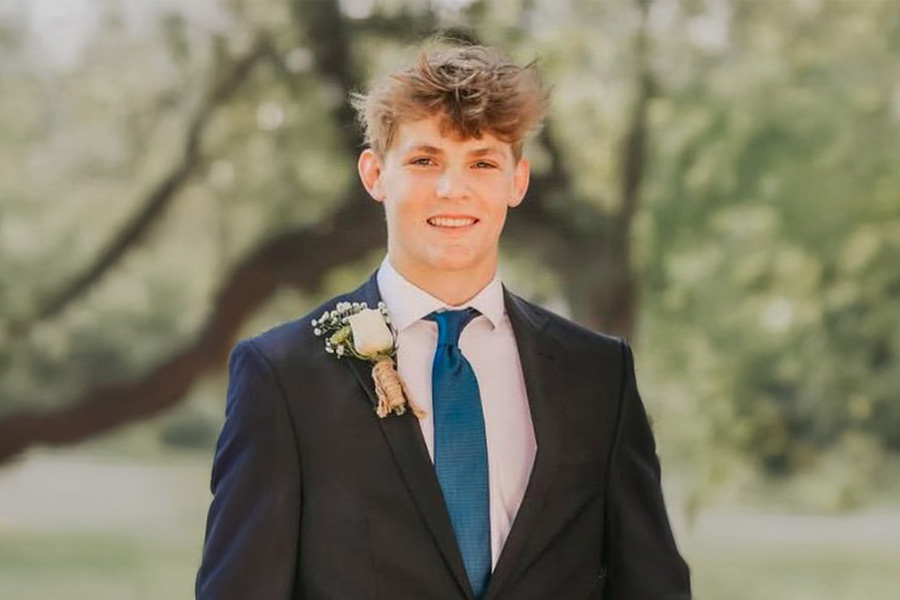

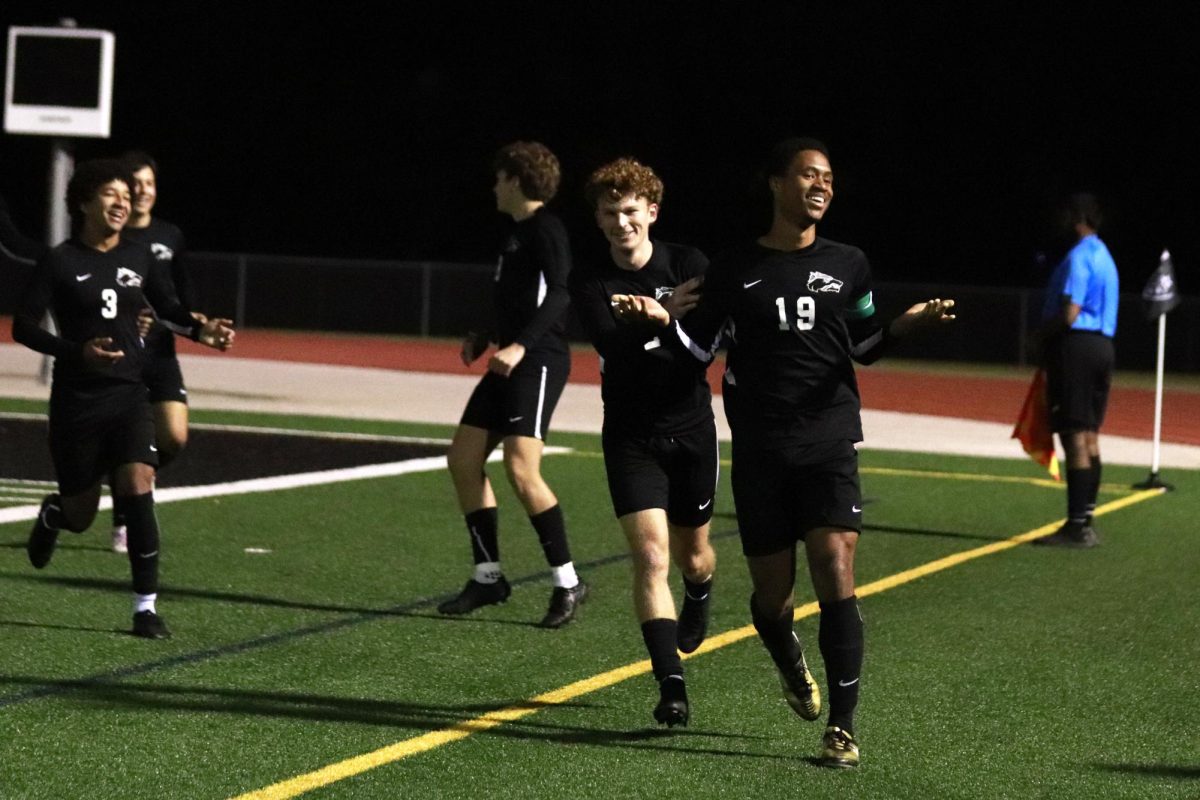
![Taking a breath as he raises his arm up and out of the water, sophomore Kaden Padilla swims the 500 freestyle at the UIL state meet on Feb. 21-22. Padilla placed 10th overall and second in the consolation final in the event, dropping two seconds. “My family was there, so being able to drop time for them was really special,” Padilla said. “It was awesome [finding out I advanced to the consolation finals]. I wasn’t expecting it, and I was very surprised. My parents being there definitely made me a lot happier knowing they got to see me swim in finals.” Photo by Skyler King.](https://cphswolfpack.com/wp-content/uploads/2025/03/kaden-padilla.jpg)

![Three defenders try to stop senior point guard Hope Edwards before the ball leaves her hands. The girls basketball team faced Liberty Hill on Feb 21, losing 58-40. “[My season was] definitely bittersweet,” Edwards said. It's definitely sad [because] I'm gonna miss all my teammates, my coaches and just the whole CP environment.”](https://cphswolfpack.com/wp-content/uploads/2025/03/julia-128-1200x800.jpg)













